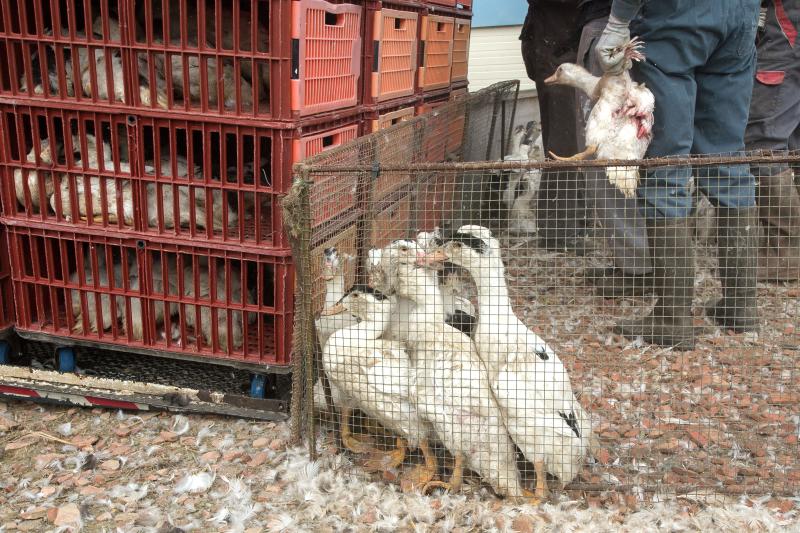
The Netherlands have issued a Poultry Housing Order after a confirmed outbreak of the H5 strain of avian influenza on a duck farm.
The Dutch authorities have confirmed an outbreak of H5 at a duck farm in Biddinghuizenin, Netherlands, 70 km east of Amsterdam.
The N type and the strain are not yet known. APHA have announced that they will issue a new UK assessment on Monday (11 December).
The risk in the UK is still considered low in commercial poultry flocks but has recently been raised in wild birds to medium by APHA (Animal Plant and Heath Agency).
Recent EU regulations now allow birds to be housed for up to 16 weeks without losing their free range status.
Last year the UK faced a housing order for poultry which over ran the regulations, which then allowed free range poultry to be housed for up to 12 weeks without losing their free range status.
At the end of the housing order the EU regulations insist that hens either be allowed outdoors or eggs be reclassified as barn. DEFRA have said that should UK birds be housed longer than the EU limit egg packers will be forced to re-package eggs with the new barn packaging.
DEFRA have said that should an outbreak occur on the continent close to the UK they may start by issuing orders to house birds regionally in designated High Risk Areas (HRA) which are deemed close to areas visited by migrating wild birds.
UK poultry farmers have been urged to be vigilant in light of continued outbreaks of avian influenza on continental Europe, mainly in Italy, Bulgaria and Germany.
Germany has reported an outbreak of low pathogenic H5N2 bird flu on a farm in the Lower Saxony region in the north of the country on Thursday (23 November).
Meanwhile, Italy has announced three virus cases. Farms affected, all in the Bresica province, have included a fattening 19,000 bird turkey farm, a 37,000 head laying hen unit and a 30,000 free-range unit.
